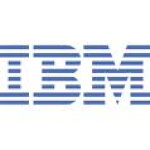- Settore: Computer
- Number of terms: 98482
- Number of blossaries: 0
- Company Profile:
Sometimes referred to as “Big Blue” IBM is a multinational corporation headquartered in Armonk, New York. It manufactures computer hardware and software and provides information technology and services.
(1) A program that uses a C++ class.<br />(2) In dynamic routing the application program, running in the requesting region, that issues a remote link request.<br />(3) In the client/server model, the front-end transaction.
Industry:Software
(1) A database to which a connection is made by using a database link, while connected to a local database. See also local database.<br />(2) A shared database that is accessed by a program running on a different computer. The shared database is considered remote with respect to the program accessing it.
Industry:Software
(1) A program that uses the Advanced Program-to-Program Communications (APPC) application programming interface (API) to communicate with a partner application program on a remote system.<br />(2) A user-supplied application program for processing data received by the system from a finance device.<br />(3) A program that processes transactions in an SNA network.
Industry:Software
(1) A data-sharing component of Sametime that can be a blank board on which users draw with tools or on which they present files that have been attached.<br />(2) A feature that can be used during a session to present files, type text, and draw objects such as circles or rectangles in order to emphasize important information in presentations.
Industry:Software
(1) A program used to automate certain tasks for running and managing database jobs.<br />(2) The IBM licensed program that is a job scheduling system designed to allow unattended operations, to automate operator functions, and to control report distribution.
Industry:Software
(1) A DB2 database function that forces the federated server to start a data source function. A function template does not contain code that can be run. See also function mapping.<br />(2) A detailed plan that describes the construction of a set of related individual C++ functions.
Industry:Software
(1) A program used to communicate with stations in a network, enabling users to perform application-oriented activities.<br />(2) A complete, self-contained program, such as an editor or electronic mail, that performs a specific task for the user, in contrast to system software, such as the operating system kernel, server processes, and program libraries.
Industry:Software
(1) A DBCS character.<br />(2) A visual representation of a character, other than a control character, that is normally produced by writing, printing, or displaying. See also glyph.
Industry:Software
(1) A program variable that provides operational and possibly representational characteristics to byte strings in spaces.<br />(2) An object that conveys information, such as text, graphics, audio, or video. See also machine object.<br />(3) A piece of client data that is placed on the coupling facility by CQS as a result of a CQSPUT request or a CQSUPD request. From an IMS shared queues point of view, a data object contains one part or all of an IMS message or an entire EMH message. From an IMS Resource Manager point of view, a data object contains information about an IMS resource such as a transaction or a user.<br />(4) Any object (such as tables, views, indexes, functions, triggers, and packages) that can be created or manipulated using SQL statements. See also business object.<br />(5) An object that is either specified within a page or overlay or is identified as a resource using the Map Data Resource (MDR) structured field and later included in a page or overlay. Examples include: PDF single-page objects, encapsulated PostScript objects, and IOCA images.<br />(6) An element of data structure such as a file, an array, or an operand that is needed for the execution of an application.
Industry:Software
(1) A decision to force a commit or rollback of a logical unit of work in part of a transaction program network that is using the two-phase commit protocol. A heuristic decision is made when a system or communication failure prevents the logical unit of work from being completed.<br />(2) An action that is independent of the DB2 transaction manager to commit or roll back a transaction on a DB2 database.<br />(3) A decision that forces indoubt resolution at a participant by means other than automatic resynchronization between coordinator and participant.
Industry:Software
